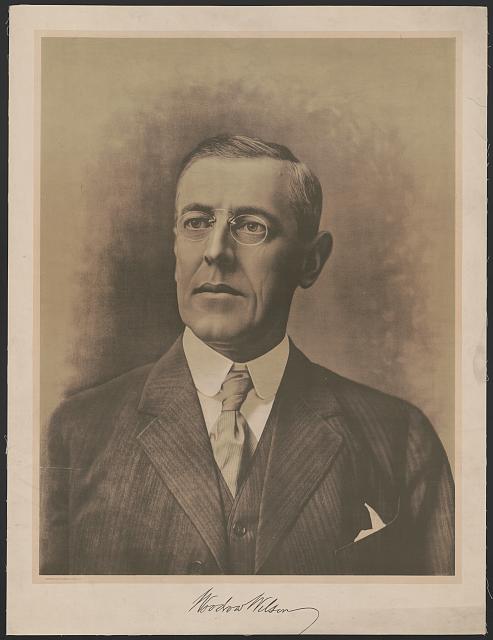Woodrow Wilson, the 28th President of the United States, had a lasting impact on American society through his progressive legislation. Serving from 1913 to 1921, Wilson implemented policies and reforms that aimed to address social and economic inequality while strengthening the role of government and enhancing the democratic process. Below are a few of his accomplishments that stand out until this day.
Federal Reserve Act:
One of Wilson’s most significant achievements was the passage of the Federal Reserve Act in 1913. This landmark legislation established the Federal Reserve System, a central banking system designed to regulate the country’s monetary and financial stability. By creating a flexible currency supply, the Federal Reserve Act aimed to mitigate economic crises and stabilize the banking system. It introduced a network of twelve regional banks overseen by a centralized Board of Governors, fostering cooperation between private banks and the government. This legislation remains a fundamental pillar of the American financial system, providing stability and resilience during periods of economic turmoil.
Clayton Antitrust Act:
In 1914, Wilson signed into law the Clayton Antitrust Act, amending the existing Sherman Antitrust Act. This act aimed to limit monopolistic practices, improve competition, and prevent unfair business practices. It prohibited practices such as price discrimination, exclusive dealing, and mergers that reduced competition. The Clayton Antitrust Act also granted the Federal Trade Commission (FTC) significant powers to investigate unfair trade practices and enforce antitrust laws more effectively, promoting economic fairness and competition. By curbing the power of large corporations and promoting fair market practices, this legislation played a crucial role in leveling the economic playing field and protecting consumer interests.
Federal Trade Commission Act:
Simultaneously, Wilson championed the Federal Trade Commission Act in 1914, establishing the Federal Trade Commission (FTC). This independent agency aimed to prevent unfair methods of competition, deceptive advertising, and fraudulent business practices. The FTC was granted investigative powers to protect consumers against unscrupulous corporations. It played a pivotal role in safeguarding consumer rights, fostering fair business practices, and ensuring market competition. By holding businesses accountable for their actions, the FTC helped establish a regulatory framework that continues to protect consumers from predatory practices and promote a fair and transparent marketplace.
Underwood Tariff Act:
In 1913, Wilson enacted the Underwood Tariff Act, which significantly reduced import tariffs and heralded a new era of trade policy. Recognizing the detrimental effects of high tariffs on domestic consumers and international trade, Wilson aimed to stimulate economic growth and foster global cooperation. The act not only lowered duties on many goods but also introduced a federal income tax. This progressive tax system aimed to redistribute wealth and alleviate the burden on lower-income households while providing the government with a reliable source of revenue. The Underwood Tariff Act revolutionized trade policy, paving the way for more equitable international trade agreements and transforming the government’s approach to taxation.
Woodrow Wilson’s progressive legislation had a profound impact on American society. Through landmark legislation such as the Federal Reserve Act, the Clayton Antitrust Act, the Federal Trade Commission Act, and the Underwood Tariff Act, Wilson revolutionized the role of government in addressing economic inequality, promoting fair competition, and establishing regulatory structures to protect consumers. These reforms continue to shape the fabric of American society and serve as a testament to the power of progressivism. Wilson’s legacy stands as a reminder of the transformative potential of bold and forward-thinking policies in creating a more equitable and prosperous future for all.
